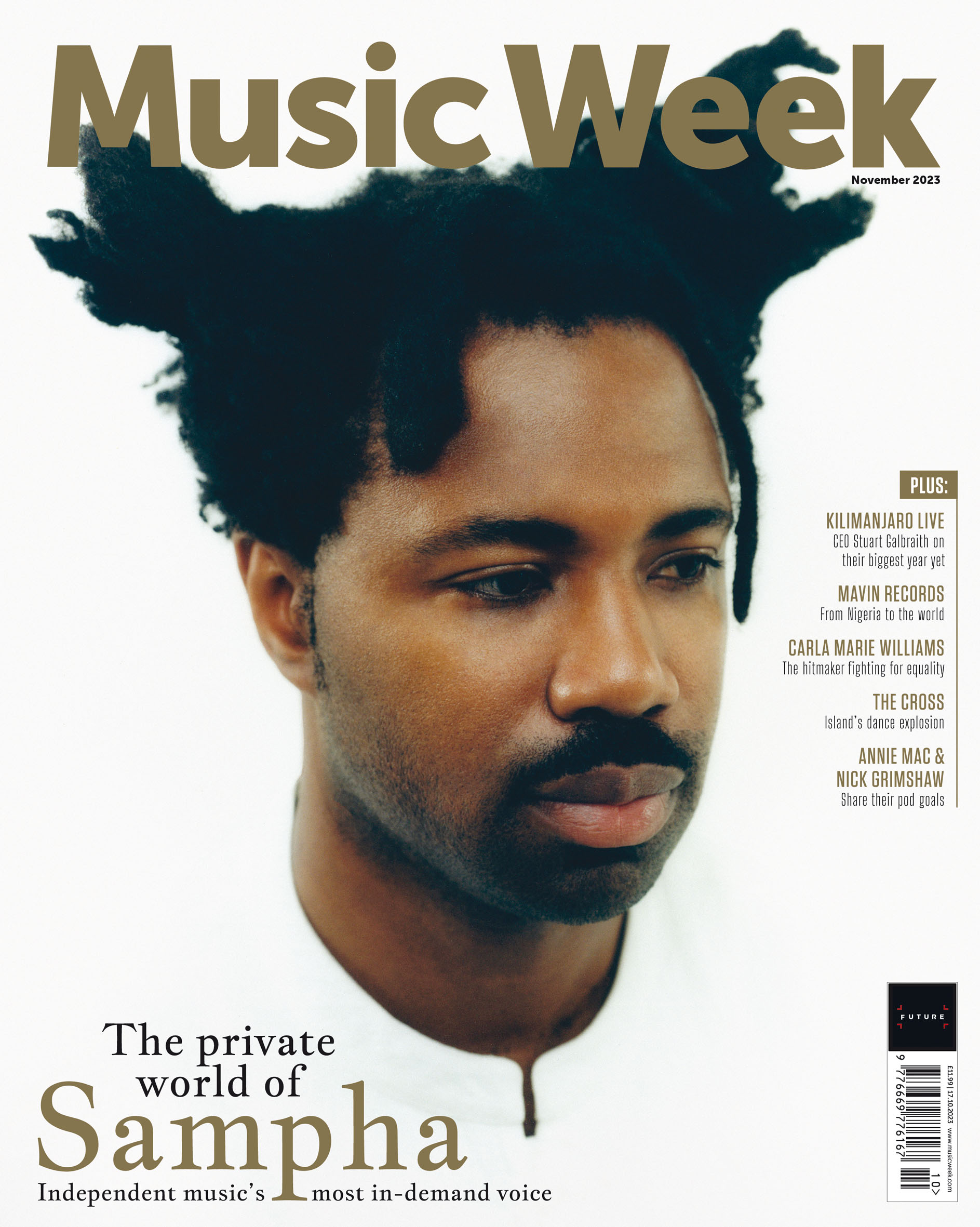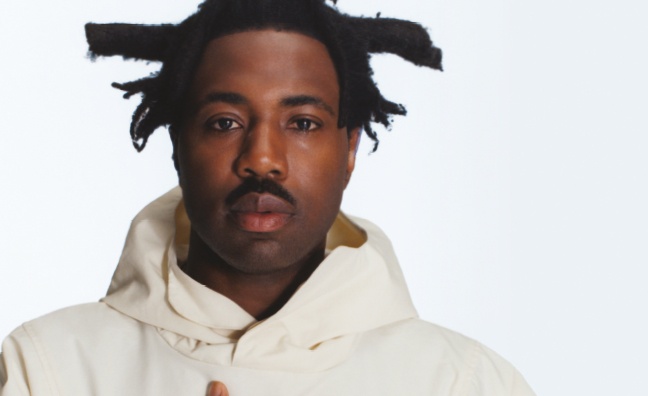Sampha is back.
Six years after his Mercury Prize-winning debut Process, his second album Lahai is out now on Young, representing a watershed moment for the singer, songwriter and producer.
Even before Process was released, Sampha had collaborated with a raft of names, with Drake, Beyoncé, Solange, Frank Ocean and Kanye West notable among them. He has since added the likes of Alicia Keys, Kendrick Lamar, Stormzy, Travis Scott and more to the list and, as such, his comeback sees the return of the most in-demand voice in independent music.

“Psychologically, I can find it hard to balance the complexities of having a presence online or having people notice you,” Sampha told Music Week in our brand new cover interview. “So that threw me off a little bit [initially] and I became slightly stand-offish from social media.”
That stance has changed somewhat now, with Sampha back on the promo trail to tell the story of Lahai, which is inspired by love, loss and spirituality. As he did on Process, Sampha draws on the loss of his parents, while his young daughter, born during the Covid pandemic, adds new life to his broad range of inspiration.
“I’m grappling with trying to embrace how perspective changes with loss and how grief isn’t finite,” Sampha said. “It just changes shape, it resurfaces when joy might appear and there’s a dance between the two. It’s interesting to see the magic in having a child as well. You have to be patient and re-evaluate your presumptions about life and that makes you question things like social conventions, obedience and how you were brought up. Also, it’s about recognising how having a kid is not going to fix you, that there are certain challenges only you can face.”
Sampha is signed to and managed by Young, where he initially started as an intern with little intention of singing on his own songs and releasing them, let alone becoming so sought after.
“I was struck by his raw qualities and his rare humility,” Young founder Caius Pawson told Music Week. “Now, I hear artists talk about him, I see him on other people’s records, I can see the influence he’s had, even beyond music. It’s his ability to normalise grief, his empathy, as well as his musicality, that have gone far. His way of staying true to himself is a massive influence. The new record sounds like Sampha, and that in itself is a success, that’s pure artistry. As long as he’s doing that, we can’t ask for any more.”
Day-to-day manager Hannah Partington expanded on Young’s methodology when it came to moving on from Sampha’s landmark Mercury win.
“His internal creative convictions are resolute, but I wanted him to feel comfortable articulating that outwards,” she said. “And of course, [we offer] a dose of healthy resistance to help evolve ideas. What we do is figure out which idea is the one to act upon, to create the space for Sampha to follow his instincts, with the people he wants to help realise them.”
Process hit No.7 in the UK and has 73,567 sales to date, according to the Official Charts Company and Pawson outlined Young’s high hopes for Lahai.
“First and foremost, I want Sampha to be widely recognised as the artist that he is, by his peers, the media and fans,” he said. “Sales target-wise, we tend to play a slightly longer game. Process ended up selling half a million copies worldwide. I would expect this to do very well, but with multiple re-releases by pop stars, chart position is almost impossible to predict. But Sampha has got a very, very strong US following, and like most Beggars acts, he does very well across most international territories. We aim for an 18-month campaign with a bunch of activations to lodge Sampha into the culture, we want him to have a very long life. If this album is a success, that will be Sampha’s success.”
Sampha has more than three million monthly listeners on Spotify and Lahai is currently at No.7 in the midweeks. But Pawson emphasised that, for Young, success comes down to more than just numbers.
“Look,” said Pawson, “I want a trillion streams, I just don’t want a single one if it gets in the way of a record being as good as it can be.”
Expanding on Young’s approach, Pawson explained that “nothing is ever rushed”.
“You’d only ever rush something if you felt the added pressure would help the artistic process,” he said. “Artistic development is the number one thing we’re interested in: where someone is going. I’ve always felt that the artists people respond to are the ones who are totally unique, and you can only be that if you’re given space and are free from interference.”
Weighing up his return to the industry with Lahai, Sampha offered his own definition of success.
“It’s a weird industry to be in, the dopamine and serotonin hits you get from the adoration and stuff can mess up your ability to feel, basically,” he said. “It’s a fine balance, but connecting to reality and life, rather than the other bits, that’s the real success.”
Read the full interview in the new issue of Music Week, out now. Subscribers can read it online here.












